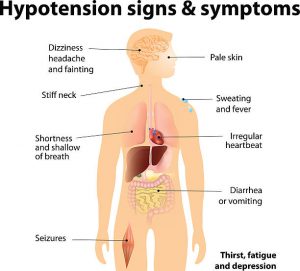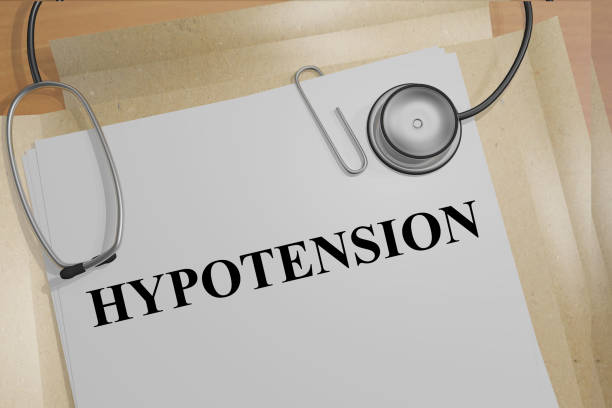
We are conversant with hypertension (high blood pressure). How about low blood pressure?
Hypotension is a condition of abnormally low blood pressure which occurs when the blood pressure is suddenly reduces from normal or becomes lower than expected.
Many people are not conversant with this because people hardly complain about it and the signs and symptoms exhibited can be confused with other ailments.
CAUSES
There are various factors and disease conditions that cause low blood pressure like:
- Dehydration which is as a result of insufficient water in the body.
- Medical conditions like hypoglycemia (low blood sugar), thyroid disorders, heart problems
- Medications like antihypertensives
- Sudden change in posture can cause a drop in blood pressure. For example, suddenly standing up after lying down for a long time
- Nutritional deficiency; stress: drug abuse
- Shock caused by bleeding (internal or external)
NB: Shock occurs when the blood pressure drops so low to the point that blood circulation does not get to vital organs of the body like the brain, liver, and kidney.
SIGNS AND SYMPTOMS

These include fatigue, dizziness, light-headedness, loss of consciousness, nausea, blurred vision, clammy skin, lack of concentration, depression, unusual thirst and dehydration, cold and pale skin, rapid or shallow breathing and irregular heartbeat.
TREATMENT
If you notice any of the symptoms above, it is best you visit the hospital for proper assessment and diagnosis, as the treatment for low blood pressure depends on the underlying cause.
After diagnosis, your doctor will place you on routines to raise your blood pressure. Your doctor may also require you to eat small meals frequently, avoid lifting heavy objects, drink plenty of water, eat balanced diet, avoid standing for a long time, monitor your blood pressure and blood sugar levels, and different activities to bring it to normal.
In cases of severe bleeding – whether internal or external, the bleeding will have to be controlled and stopped before measures can be taken to normalize your blood pressure.
Your doctor can also add medications that can help increase your blood pressure.
Image credit: istock photos

Ezike Nonye is a Pharmacist who completed her Bachelor degree from University of Lagos (B.Pharm). She is currently exploring digital marketing analytics as a novel field in Pharmacy practice while also interning at the Federal Medical Center (FMC) Abeokuta, Ogun State, Nigeria. She is a graphic designer, a blogger and an entrepreneur. She is passionate about creating new things from nature and believes that there is no limitation to what you can achieve. She is a Christian and loves writing and open to new ideas and skills.

